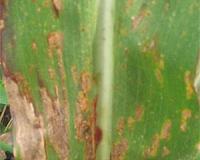 |
Berlin (AFP) Jan 7, 2011 A food scandal in Germany deepened Friday, as regional authorities shut down more than 4,700 farms after tests showed animal feed had been contaminated by a chemical that can cause cancer. And fears grew that the contamination could have entered the food chain earlier than thought, as tests on animal fats at the firm at the centre of the scandal reportedly showed they were tainted as far back as March last year. "4,709 farms and businesses are currently closed," including 4,468 in the state of Lower Saxony, northwest Germany, the agriculture ministry said in a statement late Thursday. The farms will be closed until they are found to be clear of contamination with dioxin, a toxic chemical compound that can cause cancer, and will not be allowed to make any deliveries, the ministry added. Eight of Germany's 16 states were affected by Thursday's closures. There are around 375,000 farms in Germany. The firm Harles und Jentzsch in the northern state of Schleswig-Holstein is alleged to have supplied up to 3,000 tonnes of contaminated fatty acids meant only for industrial usage to around 25 animal feed makers. The majority of this contaminated acid -- 2,500 tonnes -- was delivered in November and December to animal feed producers in Lower Saxony, where it was used as fodder. Tests on samples from Harles und Jentzsch showed nine samples out of 20 had dioxin levels higher, or much higher than legal, the Schleswig-Holstein ministry said earlier Thursday. A spokesman at the agriculture ministry in Berlin defended the closures. "The states are acting as they must in banning as a precaution -- and this in the absence of concrete results from tests -- all products, including eggs and meat, which had partially contaminated fodder as their origin," he said. Food safety was the "absolute priority", he added. The agriculture ministry has set up a hotline for worried consumers. The Hannoversche Allgemeine Zeitung reported on Friday that tests conducted on Harles und Jentzsch as far back as March last year had revealed dioxin levels twice the permitted maximum amount. However, the March test was not transmitted to the correct authorities and the agriculture ministry in the northern state of Schleswig-Holstein only received the results of the test in late December, the paper said. Prosecutors have launched an investigation into the company. The scandal has now spread beyond Germany's borders. German authorities on Wednesday informed the European Commission and business partners that 136,000 eggs, or nine tonnes of the product, from contaminated German farms had been exported to the Netherlands. And the European Commission said Thursday the hunt for potentially dioxin-tainted eggs had also turned to Britain. But a statement Thursday from Britain's Food Standards Agency (FSA) said the tainted eggs were not thought to pose a threat. "The mixing of the eggs will have diluted the levels of dioxins and they are not thought to be a risk to health," said the agency. Agriculture Minister Ilse Aigner meanwhile called for tighter regulations at the European level to protect the food chain in a telephone conversation with European Commissioner for Health John Dalli. Businesses making fatty acids for fodder should not be able to manufacture materials destined for industrial use on the same site, she told the commissioner. The German government said earlier that up to 150,000 tonnes of feed overall were feared to have been contaminated. Dioxin, a by-product of burning rubbish and industrial activities, can cause miscarriages and other health problems in humans, including cancer if consumed in high levels. burs-ric/gk
Share This Article With Planet Earth
Related Links Farming Today - Suppliers and Technology
 University Of Illinois Research Makes Plant Breeding Easier
University Of Illinois Research Makes Plant Breeding EasierChicago IL (SPX) Jan 06, 2011 University of Illinois research has resulted in the development of a novel and widely applicable molecular tool that can serve as a road map for making plant breeding easier to understand. Researchers developed a unified nomenclature for male fertility restorer (RF) proteins in higher plants that can make rapid advancements in plant breeding. "Understanding the mechanism by which RF genes ... read more |
|
| The content herein, unless otherwise known to be public domain, are Copyright 1995-2010 - SpaceDaily. AFP and UPI Wire Stories are copyright Agence France-Presse and United Press International. ESA Portal Reports are copyright European Space Agency. All NASA sourced material is public domain. Additional copyrights may apply in whole or part to other bona fide parties. Advertising does not imply endorsement,agreement or approval of any opinions, statements or information provided by SpaceDaily on any Web page published or hosted by SpaceDaily. Privacy Statement |